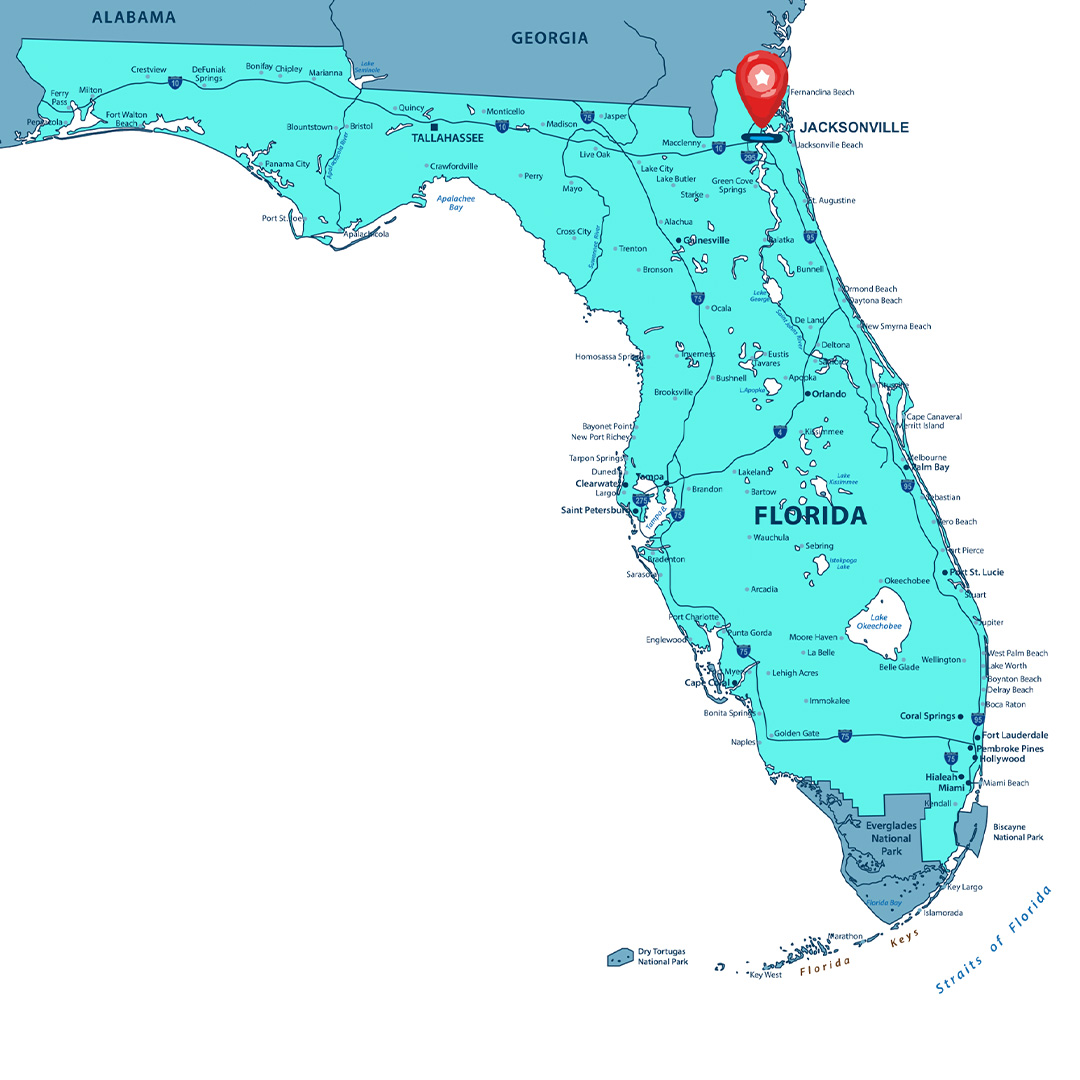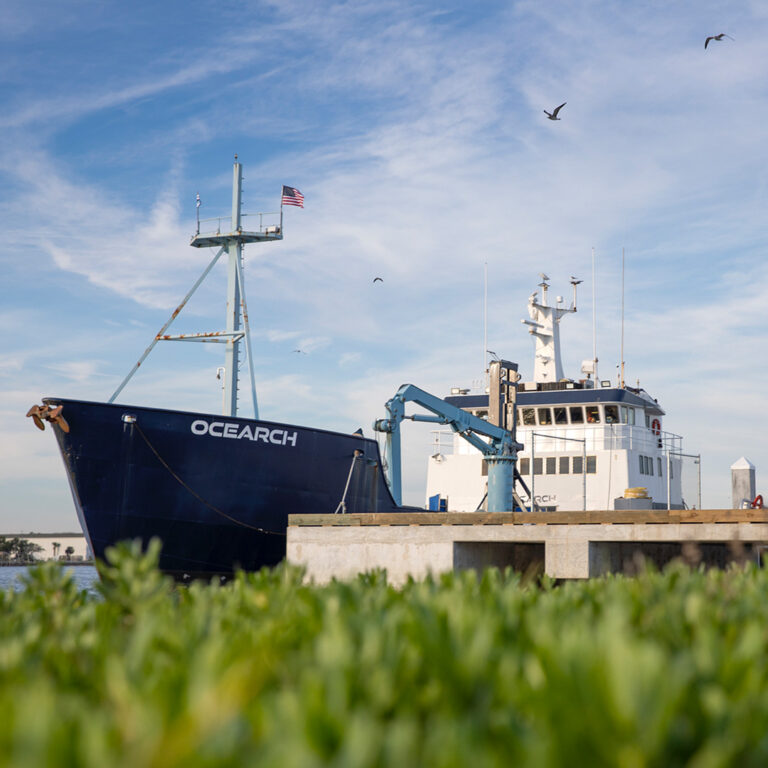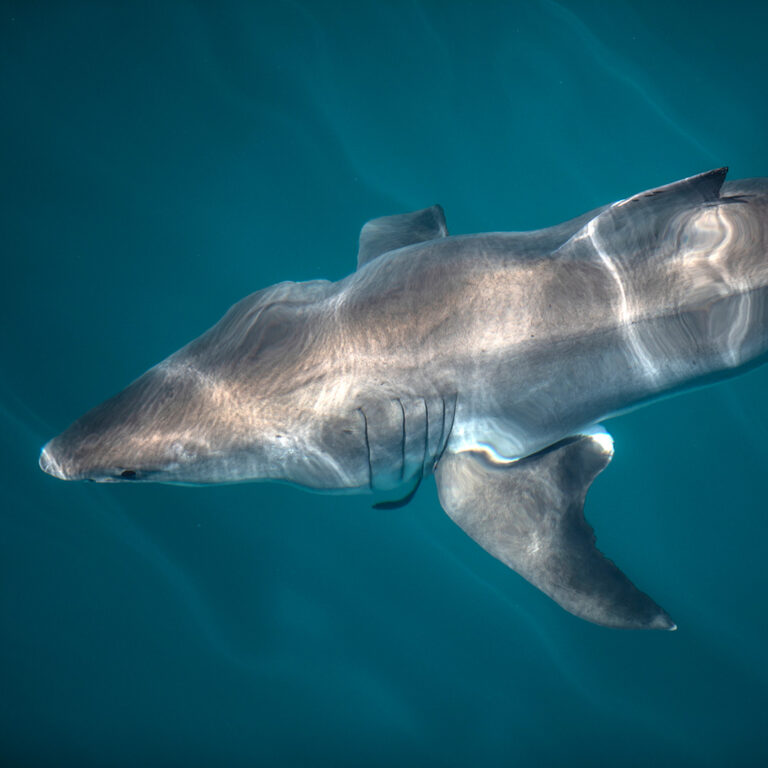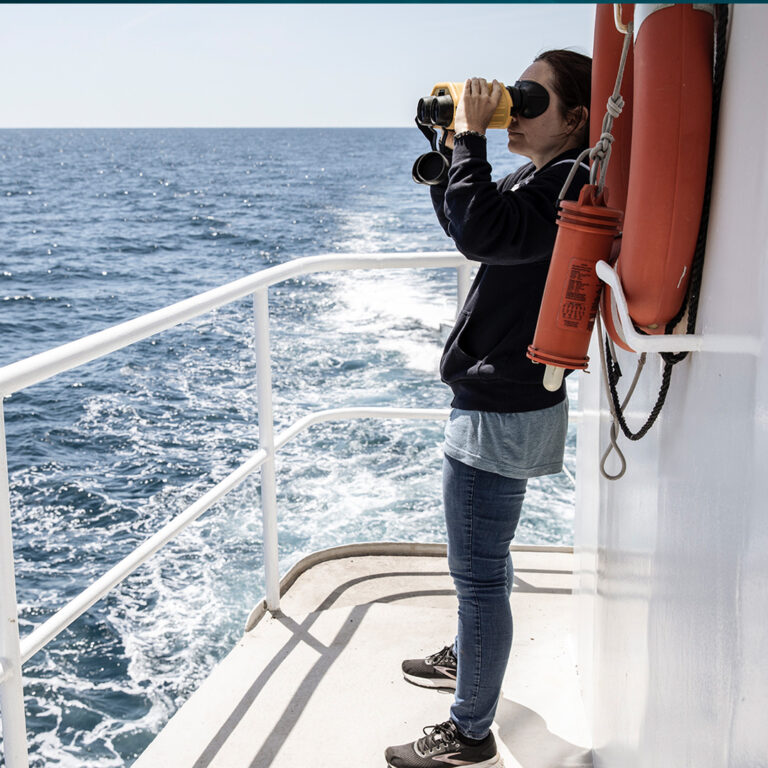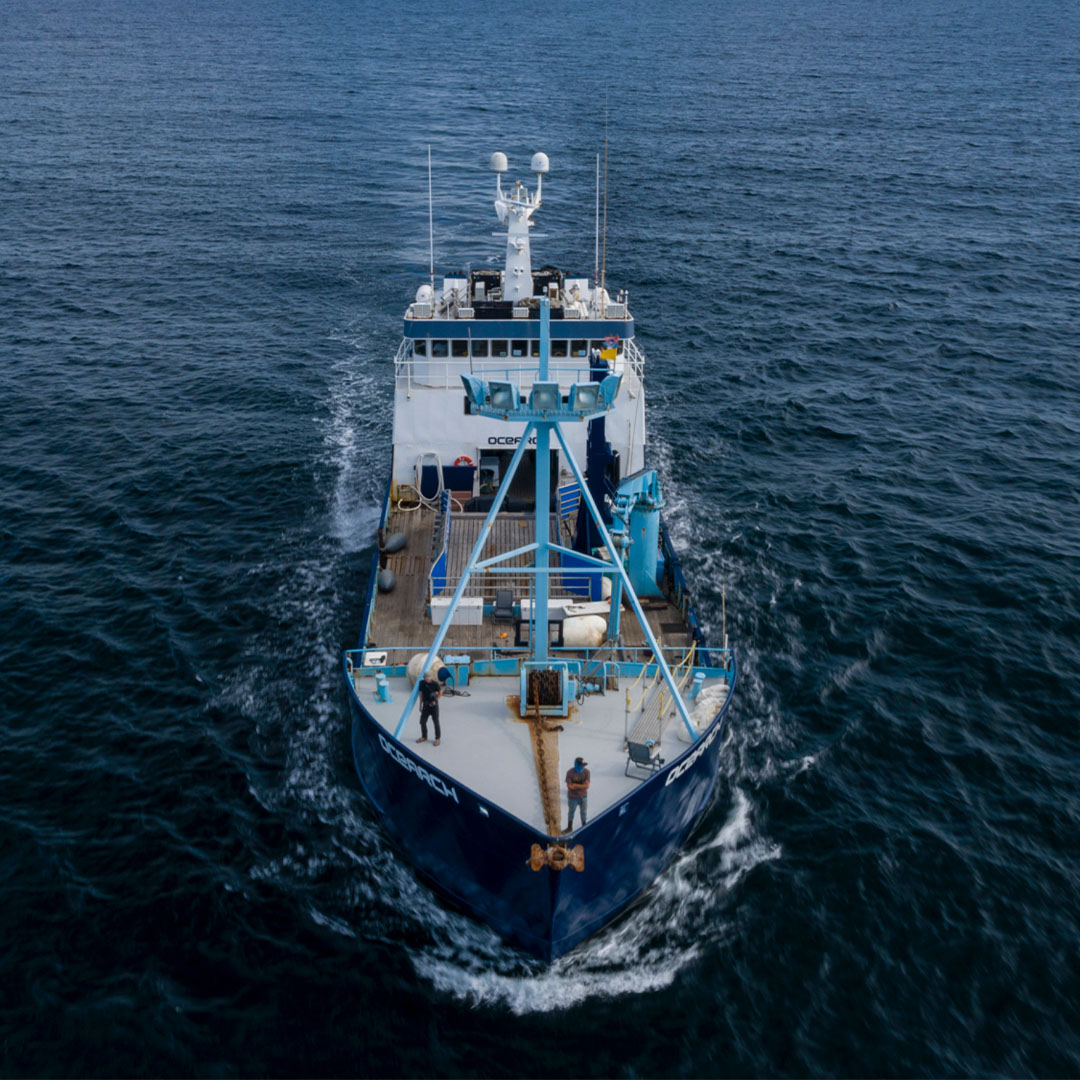
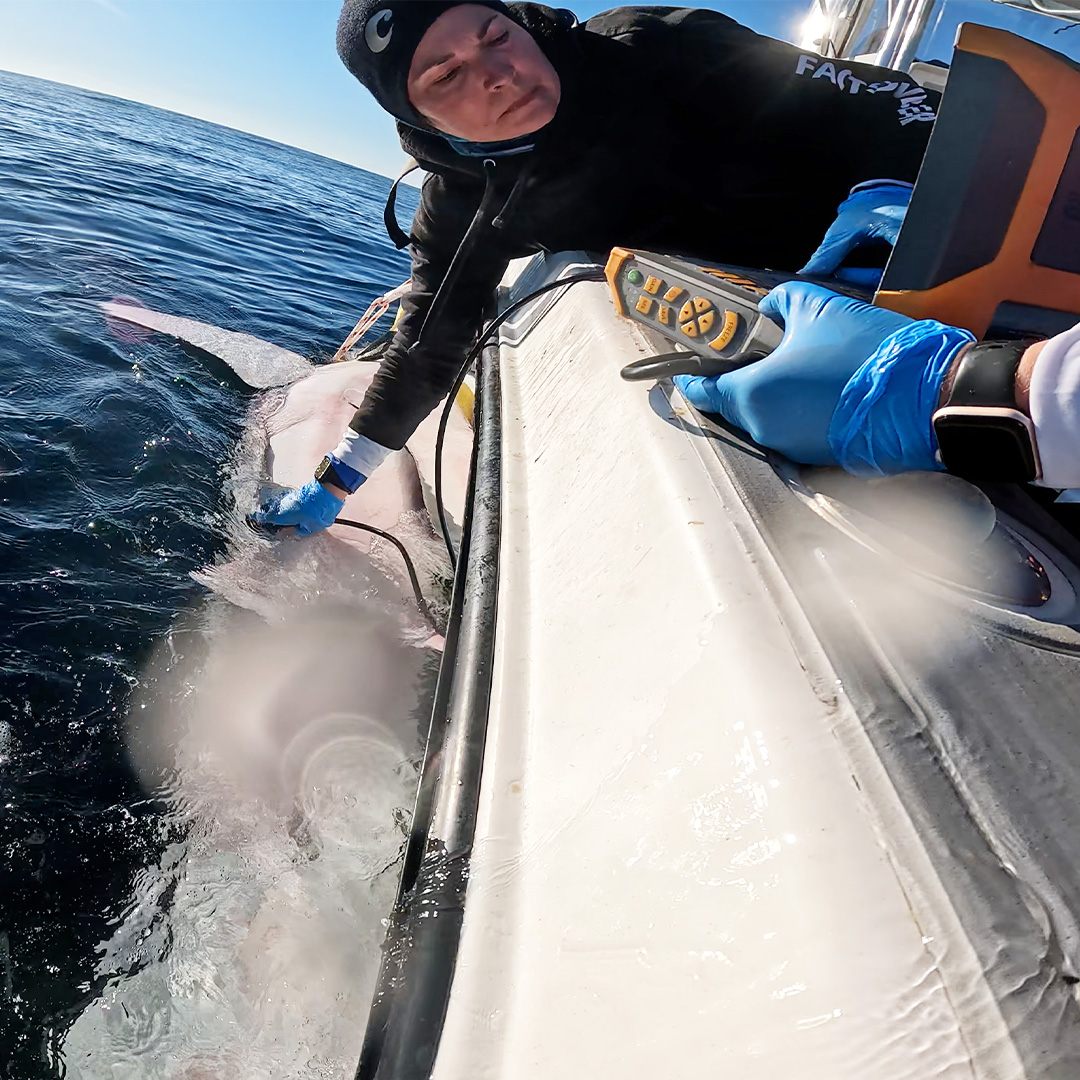
EXPEDITIONS & ONGOING
FIELD RESEARCH
At the heart of OCEARCH’s mission are our expeditions—dynamic, collaborative field research trips that bring together leading scientists, educators, and crew from around the globe. These voyages are vital to our work, allowing us to tag, track, and study apex predators like white sharks in real time. By gathering critical data on white sharks, we uncover the information needed to protect this keystone marine species and the ecosystems they call home. Each expedition fuels data-driven conservation, informing policymakers and guiding effective strategies to restore the ocean’s balance and abundance. But our work doesn’t stop at the water’s edge—through onboard education and public engagement, we invite the world to join us in understanding the vital role sharks play in ocean health and ecosystem resilience. Every expedition is a step toward a future where our seas are thriving, abundant, and protected for generations to come.
OCEARCH EXPEDITIONS
Tap an icon to learn more about our non-profit ocean research across the globe.
ONGOING FIELD RESEARCH
SUMMER/FALL RESIDENCY
SEPT 23 – OCT 13
Atlantic Canada
WHAT HAVE WE LEARNED SO FAR?
WHY ARE WE CONTINUING FIELD RESEARCH IN ATLANTIC CANADA?

WHERE WILL WE BE WORKING?
We are excited to be collaborating with Dr. Nigel Hussey at the University of Windsor, from his new Tancook Islands Marine Field Station. Inspired by his experience at the Bimini Biological Field Station in the Bahamas, it has been Dr. Hussey’s dream to create a similar living marine lab for students and researchers in Nova Scotia, Canada. Encouraged by his first expedition with OCEARCH in 2018, and after seeing the number of white sharks tagged and released on that trip, Dr. Hussey has been working to establish this community-based field station, located on Big Tancook Island, on Mahone Bay. The field station will support an ecosystem approach to studying marine species in the region, including white sharks.
Dr. Hussey’s lab already maintains an extensive acoustic array in the region, and over the past two years, more than 100 individual white sharks have been detected using Mahone Bay—making it an exceptional area to continue research efforts on this species. Along with other collaborating research partners, we will continue to tag and track movement patterns, identify important habitats, analyze population dynamics (age, sex, size, behavior), assess health and reproductive biology, and deepen our understanding of the white shark’s role in the Atlantic Canadian ecosystem.
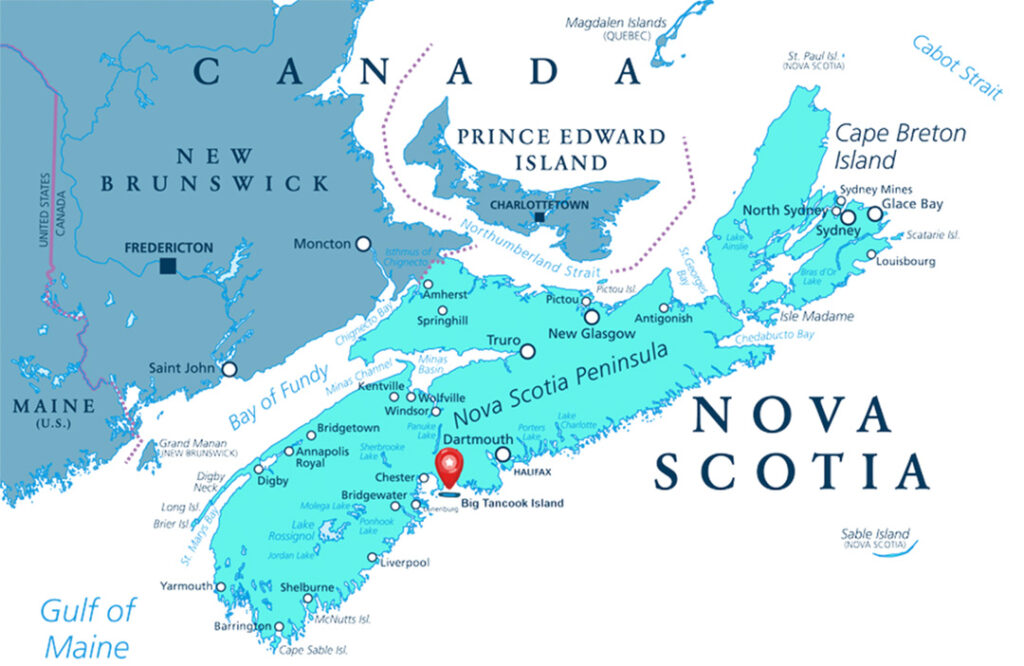
RESEARCH STATS FOR SUMMER/FALL RESIDENCY
EXPEDITION VIDEOS
ONGOING FIELD RESEARCH
WINTER RESIDENCY
DEC – MAY 2025
SOUTHEASTERN UNITED STATES
WHAT HAVE WE LEARNED SO FAR?
Between 2012 and 2024, OCEARCH has facilitated research on 92 white sharks as part of the Western North Atlantic white shark project in an effort to better understand the population status, life history, essential habitats and health of white sharks in the North Atlantic Ocean to inform and impact conservation efforts for this species and other North Atlantic shark species.
The study grew to a total of 24 projects supporting the work of 41 primary investigators from 28 different institutions.
Successes included:
• Confirmation of the Mid-Atlantic Bight as the Western North Atlantic (WNA) primary nursery for the white shark.
• Documentation of the timing and movement patterns of WNA white sharks, from young-of-year to adult verifying the timing of migration, a coastal range from Atlantic Canada to the Gulf of Mexico, and no movements of animals between the Western (North America) and Eastern (Europe, North Africa) North Atlantic
• Substantiation of the tendency of white sharks to preferentially use specific summer feeding area (either Cape Cod or Atlantic Canada) each year, a behavior known as philopatry.
• Evidence of white sharks to popular swimming beaches from Nova Scotia to Florida, yet few incidents between white sharks and humans in the WNA.
WHY ARE WE CONTINUING
FIELD RESEARCH IN THE SOUTHEASTERN US?
The M/V OCEARCH remains our at-sea laboratory and preferred platform for our research. But the previous 12 years of work have taught us that the weather windows during the winter are tiny and that conditions are often not ideal to use the lift, but are still acceptable for tagging and work-up of animals next to the Contender boat.
As we develop our new field station and headquarters in Jacksonville, Florida we will be transitioning the M/V OCEARCH to her new home dock in Mayport, FL. As weather allows we will make short trips offshore, December 2024 to May 2025. To maximize our time on the water and allow us flexibility to work in harsher weather conditions many trips will be a single day with tagging and sampling efforts occurring from the Contender.
